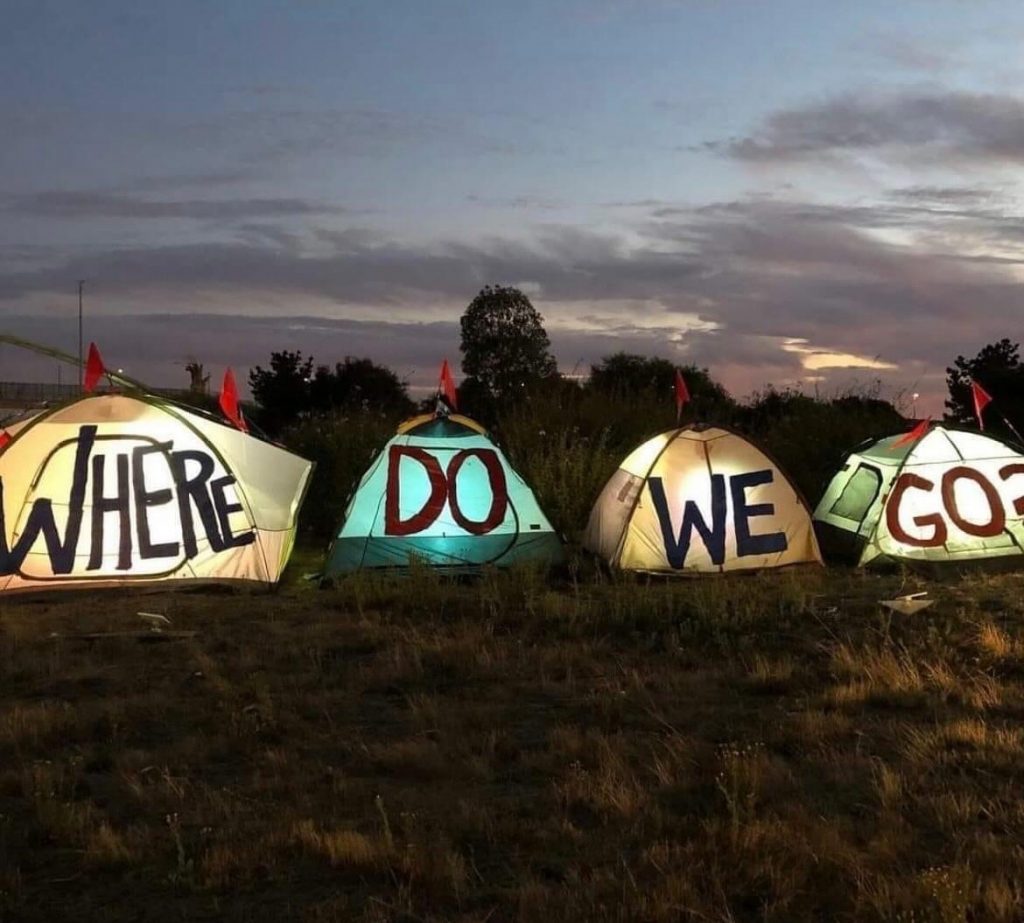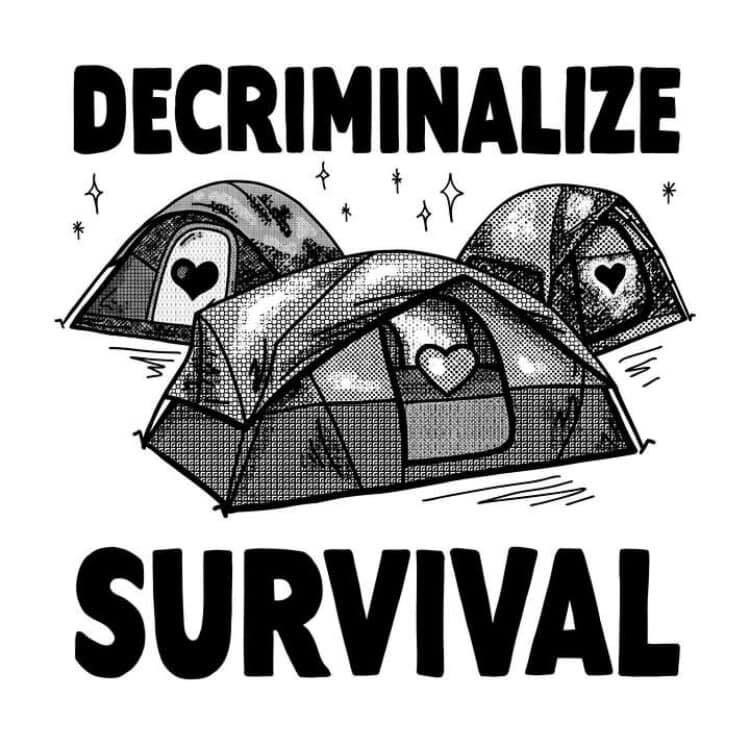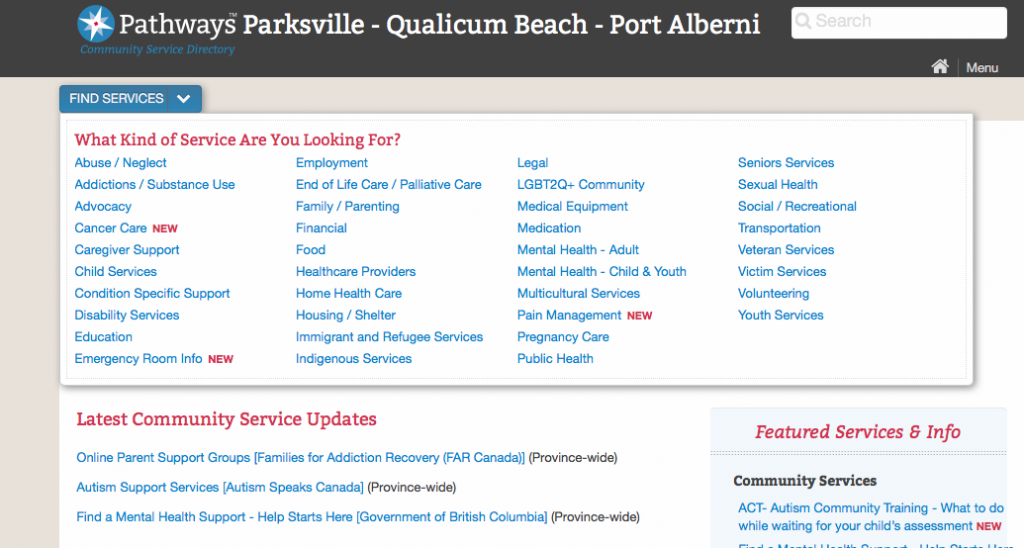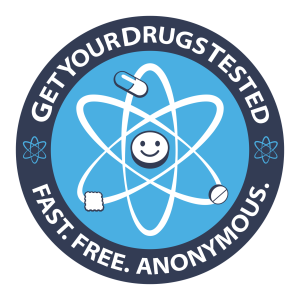Big List of Resources: Where to Get Help
Local Oceanside Resources
RiseBridge: Harm Reduction and Survival Supplies. Email risebridgeproject@gmail.com
Manna Homeless Society: Survival supplies. Manna is present at the Soup Kitchen Wednesdays and Saturdays. Inquiries to Robin Campbell at 250.248.0845. Email oceansidemanna@gmail.com
Oceanside Homelessness Task Force: Distributing survival supplies out of the SOS offices. Office phone: 250-248-2093, ext. 248 Email oceansidehomelessness@gmail.com
Day Homes: Providing the basic necessities all humans deserve, and empathy and solace for those who need it most. Daily outreach in Parksville and food on Thursdays and Sundays
NARSF Mobile Health Outreach (Ladies in the van): Toll Free 1 844 482 4239 or Text 250-510-3637 – Free and confidential safer sex and drug use supplies, HIV testing, referral, overdose prevention, harm reduction supplies, needle collection, drug testing. Leave a message on their confidential voice mail for call back, or call when NARSF outreach workers are in Parksville, Qualicum Beach, and Errington on Mondays 1-8 pm, and Thursdays 1-8pm.

Food Resources
Bradley Centre: 975 Shearme Rd, Coombs (250) 248-2336 – Thursday lunch 11:00-1:00 pm $2.
FORWARD HOUSE: 136 Hirst Ave E, Parksville – Lunch Monday to Friday, 1pm, Dinner Monday, Wednesday, Friday, 5-5:30 main tel: 250 954 0785
Salvation Army Food Bank: 886 Wembly Rd, Parksville tel: 250 248 8793
Salvation Army Soup Kitchen: hours: 1100 to 1300 hrs (Monday, Tuesday, Wednesday, Friday)
St. Stephens Church: Qualicum Beach. Thursday lunch 11:00-1:00
Day Homes: Thursday Breaking Bread outreach 3 pm, Sunday meal 1:00 at the Arbutus Grove Church.

Grief & Loss Rescources:
Moms Stop The Harm Moms Stop the Harm (MSTH) is a network of Canadian families impacted by substance-use-related harms and deaths. We advocate for the change of failed drug policies, provide peer support to grieving families, and assist those with loved ones who use or have used substances. MSTH provides a Holding Hope group for those who have a family member struggling with substance use and a Healing Hearts bereavement group for those who have lost a loved one to substance use harms. Both of these groups are currently running in Parksville. Email to contact holdinghopeparksville@gmail.com or healingheartsparksville@gmail.com
BC Bereavement Helpline – https://www.bcbh.ca/index.php
Grief Support – https://www.mygrief.ca/
Care for Caregivers– Grief & Loss – https://www.careforcaregivers.ca/campaigns/bereavement-and-grief/
CMHA – Grief Supports – https://ontario.cmha.ca/documents/loss-and-grief-during-the-covid-19-pandemic/

Telephone Help Lines
988 Vancouver Island Suicide Crisis Hotline operated by Vancouver Island Crisis Society
Island Health Service Link for substance use, harm reduction, and mental health: 1-888-885-8824
Toward The Heart Toxic Drug Alerts by Text: Text Join to 253787
24/7 Crisis Line 1-888-494-3888 or 1-800-784-2433
First Nations KUU-US Crisis Line 1-800-588-8717
BC Mental Health Line 250-310-6789
Canada Suicide Prevention Service 1- 833-456-4566
Indigenous Support Line 1-800-588-8717
Métis Support Line 1-833-638-4722
Indian Residential School Survivors Society 1-800-721-0066
National Overdose Response Service (NORS) 1-888-688-6677
Report an Overdose 604-707-2516
BC Bereavement Services 604-738-9950
Here to Help – Trans Support Line 1-866-999-1514
GONE TOO SOON – Navigating Grief and Loss as a Result of Substance Use – PDF Document
Drug Poisoning Alerts System by Saint John’s Ambulance/
Report All Overdoses: Please call 604-707-2516 to report every overdose, or fax in the Overdose Response Information form included in every Naloxone kit to the same number
BC Peer Worker Training Curriculum: hosted by BCCDC Harm Reduction Services
Island Health’s New Drug Poisoning Text Alerts System Text JOIN to 253787 to receive drug poisoning overdose advisories for select regions within BC.

Support Services
BC Bereavement Helpline:Providing free and confidential support connecting the bereaved to support services across BC. 1-877-779-2223 https://www.bcbh.ca/index.php
HeretoHelp: BC Partners for Mental Health and Substance Use Information
Gone too Soon: Grief and Loss as a Result of Substance Use – BC Version: https://www.bccsu.ca/wp-content/uploads/2018/11/Grief_Handbook.pdf
Coping Kit: Dealing with Addiction in Your Family – From Grief to Action: https://www.bccsu.ca/wp-content/uploads/2018/11/Coping-Kit.pdf
Hope and Healing: A Practical Guide for Survivors of Suicide: https://www.health.gov.bc.ca/library/publications/year/2007/HopeandHealing.pdf
Canadian Virtual Hospice: website provides information and resources related to loss and grief. https://www.virtualhospice.ca/en_US/Main+Site+Navigation/Home.aspx
The Dougy Center: Grief support resources for children and youth and their caregivers (US site). https://www.dougy.org/grief-support-resources
Wellness Together Canada – https://wellnesstogether.ca/en-CA Services range from basic wellness information, to one-on-one sessions with a counsellor, to community support.
Immediate Crisis Support for Frontline – Text FRONTLINE at 741741 and for Adults text ADULTS at 741741 for Immediate Crisis Support Text WELLNESS to 741741
Pocket Well App – By Wellness Together Canada (free download from app store) Pocket Well allows access to free and confidential sessions with social workers, psychologists and other
professionals, as well as other mental health and substance use services all from their phone.
First Nations Health Authority – The FNHA works towards the health and wellness of all First Nations in BC through its unique approach to wellness and its support of community wellness activities. https://www.fnha.ca/wellness
CMHA – Canadian Mental Health Association https://cmha.ca/ and https://cmha.bc.ca/covid-19
Have resources for all: including healthcare workers
BC Hub for Workplace Mental Health – https://www.workmentalhealthbc.ca/discover?savedFilters=true The site offers resources to support the wellbeing of employees and their families. Press “Resources for Employees” to access topics and strategies
CMHA – Bounce Back – https://bouncebackbc.ca/ 1 (866) 639 0522 – A free skill-building program designed to help adults and youth 15+ manage low mood, mild to moderate depression, anxiety, stress or worry. Delivered online or over the phone with a coach, you will get access to tools that will support you on your path to mental wellness.
Ministry of Health & Addictions – https://wellbeing.gov.bc.ca Pathway for mental health and substance use supports across BC
HeretoHelp https://www.heretohelp.bc.ca/ Mental health and substance use resources
Crisis Lines
Greater Vancouver Crisis Line: 604.872.3311 | 1.866.661.3311
Provincial Crisis Line: 1.800.SUICIDE (784-2433)
BC Mental Health Support Line: 310-6789
Circle of Care: KUU-US First Nations and Aboriginal Crisis Line Support Available 24 Hrs – 1-800-588-8717.
Vancouver Mental Health Society Vancouver Island Mental Health Society (VIMHS) is a non-profit organization that has been providing services in the Nanaimo region for more than forty years. And if you’re a Twitter/X user, they’re a good follow. @VIMentalHealth
https://central-island.pathwaysbc.ca Very comprehensive community services directory, featuring local and province-wide resources for health, housing, child services, addictions support and many other links.

In News – Moms Stop The Harm – Since META (Facebook) is blocking Canadian news information and articles from being shared on their platform, we have decided to create this website page as a depository of articles and news information that MSTH and our allies are involved in. Drug War news compilation resource.
Drug Data Decoded Blog and data resource by Euan Thomsom. It’s an independent, reader-supported publication examining drug policy, its harms and its modern architects. Also a good Twitter/X follow @elsthomson
Drug Policy Facts Drug Policy Facts (originally known as Drug War Facts) is a project of the Real Reporting Foundation, a nonprofit 501(c)(3) organization dedicated to expanding harm reduction and informing the debate over public policy in the areas of public health, healthcare, justice, and human and civil rights. RRF disseminates factual information and comment on existing laws, policies, and practices
Canadian Drug Policy Coalition Youtube Channel The Canadian Drug Policy Coalition (CDPC) is a non-partisan, evidence-based policy advocacy organization comprised of around 50 organizations and over 7,000 individuals striving to end the harms of drug prohibition. It operates as a project within Simon Fraser University in the Faculty of Health Sciences.
BC Coroner Service Interactive Drug Death Statistics
Click here to Read the background on the proposed 19 bed treatment centre in Parksville. We are in support of this proposal. Update, the zoning variance required to open the treatment center has passed. (Feb 2024)
The ABCs of Youth Substance Use is an initiative to promote evidence-based approaches to youth substance-use education in BC schools.
Video Resources and Links
Is Addiction A Choice? with Gabor Mate.
Dr Gabor Maté joins us at Penguin to answer some Big Questions on addiction, ‘normality’, and becoming your true self.
Western countries invest billions in healthcare, yet mental illness and chronic diseases are on a seemingly unstoppable rise. Nearly 70% of Americans are now on prescription drugs. So what is ‘normal’ when it comes to health?
Test your drugs nationwide by mail, or in person in Vancouver, BC.
BCCSU Drug Checking Results
Safe Supply, called Heroin Assisted Treatment, has been used in Switzerland since 1994.
The Swiss law requires that HAT patients must have at least two years of opioid dependence before starting treatment. They must have tried and failed two other addiction treatments and be at least 18 years old.
Since Switzerland introduced Safe Supply in 1994, the number of new heroin users has declined. Drug overdose deaths dropped by 64 percent. HIV infections dropped by 84 percent. Home thefts dropped by 98 percent. And the Swiss prosecute 75 percent fewer opioid-related drug cases each year.
But the medical directors of the HAT programs in Geneva and Zurich view the program not as a “last-resort,” but as a way to enable people to live quality lives.
Read more, from https://www.northcarolinahealthnews.org/2019/01/28/switzerland-fights-heroin-with-heroin/
Here’s A List of Information & Resources on the Poisoned Drug Crisis
by the Oceanside Community Action Team – Doc June 24, 2023
